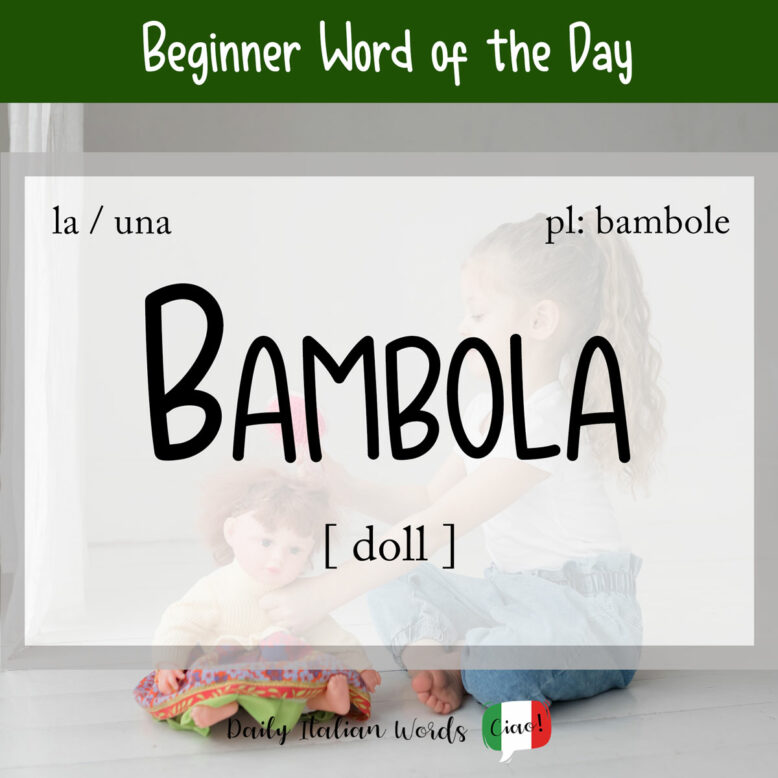The word for doll is bambola (feminine, plural: bambole) in Italian. Like the English equivalent, it is used to describe any small model of a human figure, typically a baby, girl or woman.
Similar to the word bambino (child), bambola is a derivative of bambo, which is an obsolete term meaning child or foolish.

Many kinds of bambole exist, from the traditional bambola di pezza (rag doll) and bambola di porcellana (porcelain doll) to the more recent bambole di plastica (plastic dolls).
Some verbs you might see used with bambola include:
- giocare con le bambole = to play with dolls
- vestire / svestire una bambola = to dress / undress a doll
- collezionare bambole = to collect dolls
La bambina passa tutto il suo tempo a giocare con le bambole.
The little girl spends all her time playing with dolls.
You may have heard the term bambolotto which is a derivative of bambola. Not only is it the name for a doll with male clothing, but it is also an affectionate term for a chubby baby of either sex.

Back in the day, a slang term North American men would use to refer to an attractive young woman was doll. The Italians later assigned this meaning to the word bambola as well. You can hear it used in this sense in the song Che bambola! (What a babe!) by Fred Buscaglione. Keep in mind that in Italian, it can also be used negatively to refer to a beautiful woman with an inexpressive face.
In sports jargon, bambola has a completely different meaning, as you can see from the following idiomatic expressions:
- andare / essere in bambola = to no longer be able to cope or focus due to fatigue or overexertion
- prendere / pigliare una bambola = a performance crisis, to be in a state of stupor
And speaking of idioms, a favourite of my husband’s is pettinare le bambole (lit: to comb the dolls’ hair). A tongue-in-cheek way of saying to waste time or to do something utterly pointless, it is often used as a sarcastic rebuttal as in the following example:
Invece di rimanere lì seduto a pettinare le bambole, perché non vieni a darmi una mano?
Instead of sitting there twiddling your thumbs, why don’t you come and give me a hand?

Heather Broster is a graduate with honours in linguistics from the University of Western Ontario. She is an aspiring polyglot, proficient in English and Italian, as well as Japanese, Welsh, and French to varying degrees of fluency. Originally from Toronto, Heather has resided in various countries, notably Italy for a period of six years. Her primary focus lies in the fields of language acquisition, education, and bilingual instruction.


